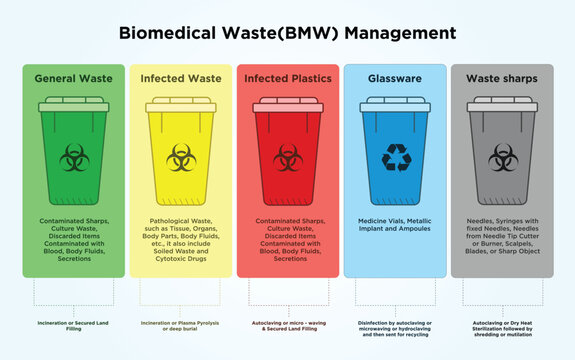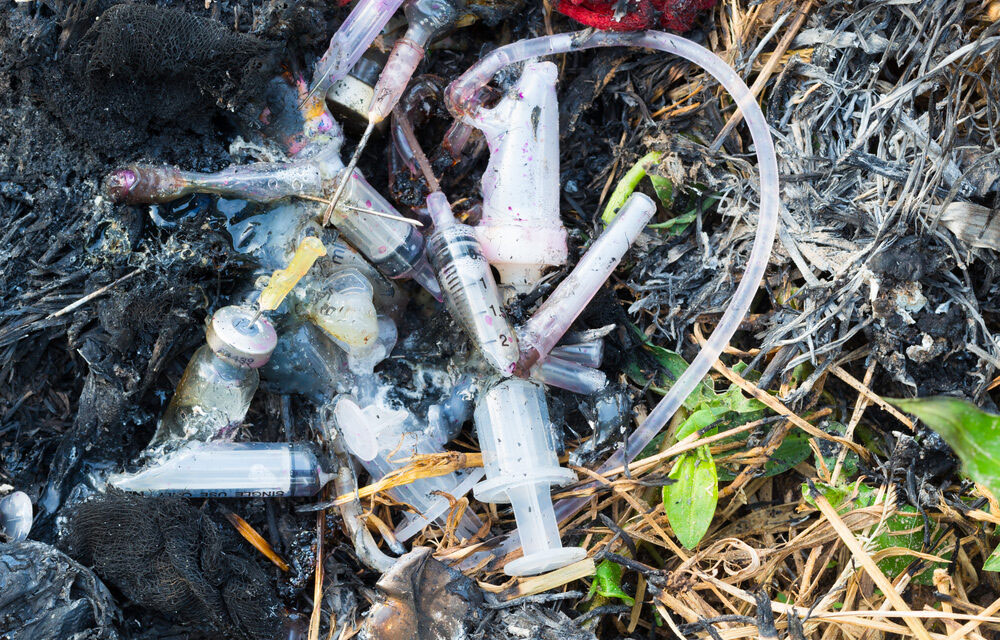Liable Solutions: Recognizing Medical Waste Disposal Provider
In the world of healthcare, the appropriate disposal of clinical waste is a critical element that demands cautious consideration. The value of handling clinical waste responsibly surpasses mere conformity with regulations; it directly influences public health and ecological safety. As health care facilities generate various kinds of waste that call for specific handling, comprehending the subtleties of medical waste disposal solutions is critical. By checking out the ins and outs of this necessary procedure, we can drop light on the most effective techniques, advantages of professional solutions, and sustainable options available.
Value of Proper Medical Garbage Disposal
Appropriate medical waste disposal is critical in preserving a sanitary and safe atmosphere within healthcare centers. In medical care setups, various types of waste are produced daily, consisting of transmittable materials, sharps, ended medications, and chemical materials.

Kinds of Medical Waste
Within health care facilities, a varied selection of waste products identified as medical waste is generated, each requiring particular handling and disposal methods. Pathological waste, which consists of tissues, body organs, and body components, demands correct disposal to value the dignity of the dead and prevent any kind of biohazards. Comprehending the various kinds of medical waste is important for healthcare centers to execute reliable waste management techniques and secure public health and wellness and the setting.
Rules and Compliance
Healthcare facilities need to follow rigid guidelines concerning the handling and disposal of clinical waste to ensure compliance with lawful needs and safeguard public health. These regulations are implemented to stop the spread of infections, safeguard the atmosphere, and preserve the safety of medical care employees and the general public. Numerous regulatory bodies, such as the Environmental Security Company (EPA), the Occupational Safety And Security and Health And Wellness Management (OSHA), and the Department of Transportation (DOT), have specific guidelines that health care centers should comply with.
To follow these guidelines, health care facilities have to correctly segregate, store, transportation, and throw away various types of clinical waste. This includes sharps waste, transmittable waste, hazardous waste, and pharmaceutical waste, each needing details dealing with treatments. Facilities must likewise keep exact records of waste generation and disposal to show conformity during assessments.
Non-compliance with clinical waste policies can result in extreme penalties, fines, and damages to the facility's credibility. It is necessary for medical care facilities to stay educated about the newest regulations and execute durable compliance steps to protect public health and wellness and the atmosphere.
Advantages of Specialist Disposal Solutions
Engaging professional medical waste disposal services offers medical care facilities a effective and trustworthy solution for managing harmful materials. These solutions employ skilled experts that are skilled in taking care of various kinds of medical waste, making certain correct partition, transportation, disposal, and packaging. Medical Waste Disposal Services.
Moreover, specialist disposal services make use of advanced equipment and adhere to market finest techniques to decrease environmental effect and reduce the danger of contamination. This not only advertises a safer workplace for medical care personnel however additionally adds to total public health and wellness and security. Additionally, outsourcing clinical garbage disposal can cause cost financial savings in the future by removing the demand for internal management and disposal systems.
Sustainable Practices in Healthcare

One trick lasting practice in health care is waste decrease. By executing strategies to decrease unneeded product packaging, single-use products, and total waste generation, healthcare centers can considerably lower the amount of waste sent out to landfills or incineration. Furthermore, reusing programs for materials like paper, glass, and plastic can better minimize the ecological impact of medical care operations.

Verdict
In verdict, appropriate medical waste disposal is essential in preserving a safe and healthy atmosphere for both medical care employees and the public. Recognizing the different sorts of clinical waste, following guidelines and conformity standards, and utilizing professional disposal services are vital steps in liable waste administration. By taking on sustainable practices in health care facilities, we can reduce ecological impact and ensure the wellness of all individuals entailed in the health care market.
As medical care centers create numerous kinds of see page waste that require customized handling, comprehending the nuances of clinical waste disposal solutions is paramount.Within medical care facilities, a diverse selection of waste products categorized as medical waste is generated, each calling for particular handling and disposal approaches. Comprehending the different types of clinical waste is important for healthcare facilities to implement effective waste administration methods and protect public health and wellness and the setting.
By carrying out strategies to reduce unneeded product packaging, single-use items, and overall waste generation, medical care centers can substantially lower the amount of waste sent to land fills or incineration. Comprehending the different kinds of clinical waste, following laws and compliance standards, and making use of expert disposal solutions are crucial steps in responsible waste administration.
Comments on “Tailored Medical Waste Disposal Services: Customized Solutions for Your Requirements”